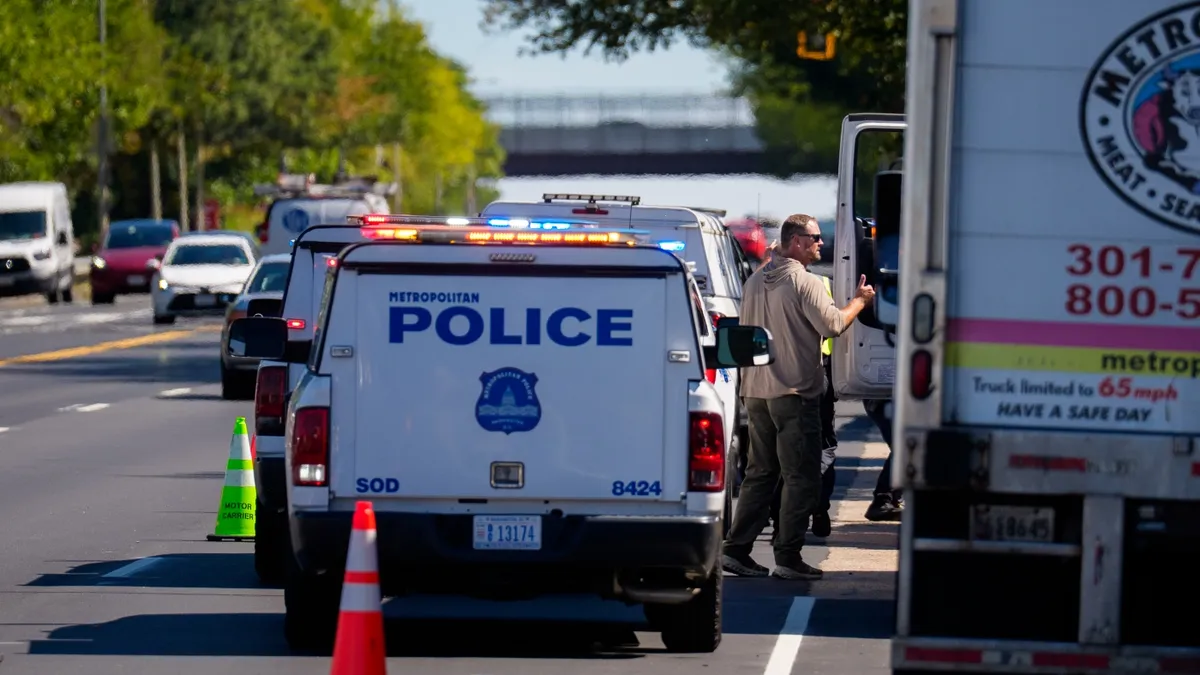
President Trump's takeover of local D.C. police is scheduled to expire on Wednesday, marking a significant moment in the ongoing debate over federal control in the District of Columbia. On August 11, Trump declared a crime emergency in D.C., leveraging his powers under the 1973 Home Rule Act to activate the D.C. National Guard and assume control of the District's Metropolitan Police Department (MPD). However, the Home Rule Act imposes limitations on this authority, intended exclusively for emergencies, allowing it to last only 30 days without Congressional approval for an extension. As of now, Congress has shown no signs of supporting such an extension.
Initially, Trump indicated a desire to maintain control, but recent statements have shifted towards praising D.C. Mayor Muriel Bowser for her collaboration, highlighting a notable drop in crime rates within the city. On his Truth Social platform, Trump remarked, "Mayor Muriel Bowser of D.C. has become very popular because she worked with me and my great people in bringing CRIME down to virtually NOTHING in D.C." While there has been a decline in crime since reaching a peak in 2023, Bowser attributes this improvement partially to federal intervention, despite emphasizing that the presence of immigration agents and National Guard troops is not effective.
In a bid to maintain effective law enforcement while navigating the end of Trump's emergency control, Bowser issued an order last week establishing a framework for ongoing cooperation between city and federal law enforcement. This framework aims to ensure resource availability during and after the presidential emergency, signaling that the city does not require an extension of Trump's emergency powers. "I want the message to be clear to Congress: We have a framework to request or use federal resources in our city," Bowser stated during a news conference, emphasizing the need for local control over federal intervention.
Congress appears disinterested in extending federal control over local police, as evidenced by the current focus of the House Oversight Committee, led by Chairman James Comer. This week, the committee is set to deliberate on several pieces of legislation aimed at overseeing District affairs and enhancing safety in D.C. The committee's agenda raises questions about the future of home rule in the District and what subsequent actions might unfold.
The administration’s attempt to install its own emergency police commissioner was quickly halted by a lawsuit from D.C.'s attorney general, which challenged the bid for full control. Consequently, D.C.'s police chief, Pamela Smith, remained in charge while the federal government maintained oversight. Following this, Smith authorized MPD officers to collaborate with immigration agencies, allowing for information sharing during traffic stops and providing transport for agency employees and detained individuals. This marked a notable shift in cooperation between local police and federal agencies.
Since the federal surge began on August 7, at least 1,669 individuals have been arrested, many for immigration-related offenses. An analysis by NPR revealed that during the first two weeks of Trump's police takeover, only about 20% of defendants faced felony charges, with the majority being misdemeanors and traffic offenses. Trump has frequently claimed the success of the mission, declaring D.C. "NOW A CRIME FREE ZONE," despite data indicating that crime has not reached zero.
According to an MPD report released recently, total crime in D.C. has decreased by 15% from August 7 to September 8, compared to the same timeframe last year. Notably, violent crime has dropped by 39%, and carjackings have seen a staggering 74% reduction, with only 12 incidents reported since the federal takeover, compared to 47 during the same period in 2024. While Bowser acknowledged the positive effects of federal intervention on gun crime and homicides, she also expressed concerns about the erosion of trust between police and the community, particularly with the introduction of new federal partners.
The recent developments have reignited discussions about home rule in D.C., with many residents and elected officials feeling powerless against Trump's actions, given the federal government's substantial authority over the district. Discussions about strengthening home rule have gained traction among Democrats. In August, Senator Chris Van Hollen and D.C. Delegate Eleanor Holmes Norton reintroduced legislation aimed at granting D.C. full control over its police and National Guard.
Conversely, some Republican lawmakers have proposed measures to repeal home rule entirely, with Trump indicating interest in exploring these options. The House Oversight Committee is set to consider 14 bills aimed at exerting more control over D.C., particularly regarding its criminal justice system. These proposals include prohibiting progressive sentencing policies and lowering the age for juvenile trials. However, the path forward remains uncertain, with Republicans needing near-unanimous support to advance these measures through the House, followed by potential obstacles in the Senate.
As D.C. navigates this complex landscape, the city's leadership continues to advocate for local control, emphasizing that the needs of the community should dictate law enforcement strategies rather than federal imposition.